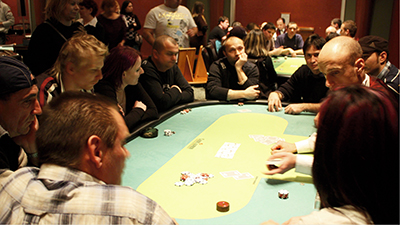Eastern European casinos are developing business despite regulatory constraints, says Jaroslaw Adamowski, who provides a run-down on the latest events in the region’s gaming industry.

THE casino industry in eastern Europe is intensifying efforts to expand despite economic turmoil in the eurozone. However, local industry representatives say that regulatory barriers and lack of dialogue between policy makers and business owners remains one of the largest challenges to the industry’s further development.
In Hungary, four new casinos are to be launched by the end of 2014 under concessions awarded this May, according to the country’s Ministry of Economy. This would provide a significant boost to Hungary’s casino industry, as only three such establishments are currently operating in the local market. Of these, two are based in the country’s capital, Budapest, and the third is located in Sopron, close to Hungary’s border with Austria.
Under the plan, two out of the four planned casinos are to be opened in Budapest by the end of autumn 2014 and a further two will be launched in the cities of Debrecen and Nyíregyháza in the summer of 2015.
Meanwhile, a fifth new casino could be opened in Budapest next year, reported local news agency MTI. The Hungarian law regulating casinos allows the operation of a maximum of 11 casinos in the country, including five in Budapest, three in Hungary’s west and a further three in the country’s eastern region.
Regulation has had a major impact on the Hungarian casino industry. According to data from the country’s gambling industry organisation, Magyar Szerencsejatek Szovetseg, in 2011, with the hike of slot machine tax by the Hungarian government, the industry posted a 70 per cent decrease in revenues. The tax was increased from 100,000 forint (US$417) to 500,000 forint (US$2,085) per machine per month.
The following year, the Hungarian government banned gambling machines in bars, pub and cafes. This has had a double effect on both the industry and the country’s economy, with the Hungarian Ministry of Economy reporting lost tax revenue of 3.2bn forint (US$13.4m) in the three months following the ban’s introduction in October 2012, according to data obtained by local newspaper Nepszabadsag.
Read the full article in the October issue of InterGaming.

